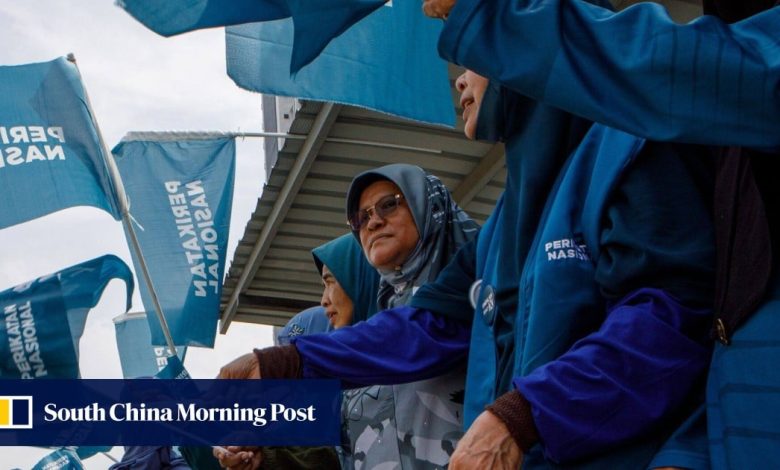Trouble brewing for Malaysia’s opposition bloc over beer funding for Chinese school event

But over the weekend, PAS redirected its ire at PN partner Gerakan, warning that their nascent partnership could crumble if it continued to speak out in support of such fundraising for Chinese education.
Gerakan shot back on Sunday, saying it would not hesitate to quit the coalition if it is forced to submit to “unreasonable” demands.

“The issue in PN is this incompatibility between Gerakan and PAS,” said Awang Azman Awang Pawi, a research fellow with Universiti Malaya’s Centre for Democracy and Elections.
“Gerakan has always been more moderate, while PAS are obsessed with political rhetoric steeped in religion. This is the result when you put together these two different ideologies.”
PN was formalised in the months following a 2020 political coup that prematurely ended the second term of prime minister Mahathir Mohamad, paving the way for a Malay-nationalist government led by Bersatu President Muhyiddin Yassin.
Muhyiddin, whose own prime minister tenure ended in 17 months due to internal strife, brought Bersatu and PAS together as the core of PN’s Malay-Muslim identity.
Meanwhile, Gerakan played a key role in softening the coalition’s Malay nationalist stance to widen its appeal to the country’s non-Malay vote base.
A deeply divided national election in 2022 delivered a formidable share of the Malay vote to PN.
PAS emerged as the party with the single largest share of seats in Malaysia’s parliament.

The spat over brewery funding, however, lays bare divisions in PN, which will only suffer politically if it ends up losing its key multiracial representative, according to political analyst Tunku Mohar Tunku Mokhtar.
“Both Gerakan and PN generally need each other. Gerakan is weak even in a political coalition, and PN needs Gerakan to soften its one-ethnicity image,” said Tunku Mohar of the International Islamic University Malaysia.
Breweries have long been involved in organising and supporting fundraising concerts for Chinese vernacular schools, which were set up during British colonial rule to educate children of Chinese and Indian immigrant workers – whose descendants took up Malaysian citizenship since independence over 60 years ago.
Supporters have said the money is necessary due to inadequate government funding, especially when compared to national schools that use Malay as their language of instruction.
Observers say PAS’ outburst is the latest example of the Islamist party exerting its growing influence in PN, especially with Gerakan’s failure to secure the buy-in of ethnic Chinese and Indian voters who remain loyal to Anwar’s Pakatan Harapan coalition.
Last year, PN retained power in three states in the peninsula’s north and grew its support base in Selangor and Penang – Pakatan’s two stronghold states – on the back of PAS’ voters and election machinery.

“At this point, PN is running on PAS alone, and it is quite possible PAS can carry the entire coalition on its back,” Aziff Azuddin, research associate with Kuala Lumpur-based think tank Iman Research, told This Week in Asia.
“The question is whether they are willing to play the long game and wait until the next election to see if the public has tired of [Anwar’s unity] government.”
Some argue, however, that the growing rifts in PN owe much to the political machinations of Anwar, who has convinced PAS to soften its criticism of his policies by offering federal financial support for its states.
“He was able to neutralise the opposition … through a more open political attitude,” said Mazlan Ali, a political analyst with Universiti Teknologi Malaysia.
“Anwar has strengthened support with his existing coalition partners and at the same time fostered good relations with PAS. I think this is a powerful strategy.”





